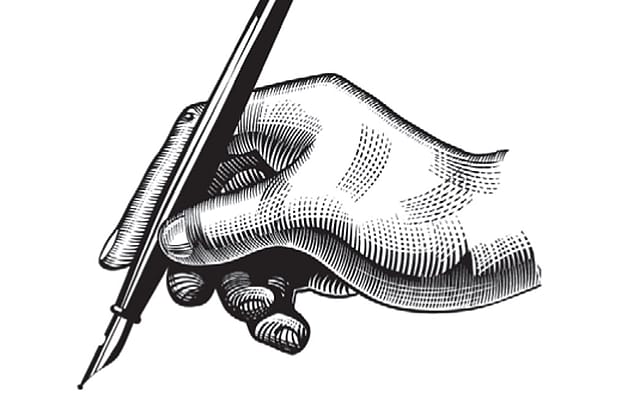Bengali-isation of BJP

CONVENTIONAL wisdom has suggested that the intellectuals of a land have always played a leading role in propelling a society forward. Within India, nowhere is the deification of intellectuals as pronounced as in Bengal or, to be more precise, the part of Bengal that somehow managed to inveigle itself out of the embrace of Muhammad Ali Jinnah's Pakistan.
It is undeniable that after the horrific bloodbath that the Muslim League unleashed in Calcutta (as it was then) and the districts of eastern Bengal such as Noakhali, Bengali Hindus were faced with a grim choice: to either be swamped within Pakistan or somehow save a slice of Bengal for India. It is to the credit of the entire leadership of Bengali Hindus that they insisted on a partition of Bengal and the creation of what we know today as West Bengal. The leadership was taken by the Hindu Mahasabha stalwarts such as Dr Syama Prasad Mookerjee and NC Chatterjee, but an equally important role was played by the provincial Congress and intellectuals such as Sir Jadunath Sarkar, Meghnad Saha and RC Majumdar.
A glance at the list of stalwarts who believed that the future of Bengali Hindus could only be safeguarded inside the territorial borders of India clearly shows that most were, politically speaking, on the centre-right. These included the leading figures of the Bengal Congress such as Dr BC Roy and Atulya Ghose. It would involve a significant sleight of hand to dub them as 'progressives'.
It is not that the progressives were absent from the landscape of Bengal. The Communist Party was perhaps the most entrenched within Bengal and, to a lesser extent, the erstwhile Bombay Presidency. Yet, on the question of Partition, the ambivalence of the Left was marked. The two Communist legislators— Jyoti Basu and Ratanlal Brahmin— did put their signatures on the resolution to create a West Bengal, but their other intellectual colleagues were of the view that pluralism could be safeguarded within Pakistan. Many comrades stayed behind in Pakistan after August 15, 1947 but, like KM Ashraf and Sajjad Zaheer in the west, the Bengali Hindu comrades soon abandoned Dacca and crossed back into the embrace of Mother India. In the process, they unleashed an intellectual climate of denial that persists to this day. It became fashionable to perpetuate the myth of a linear movement of progressivism from Henry Vivian Derozio and the Young Bengal Movement to Charu Mazumdar and the Naxalite uprising.
Openomics 2026: Continuity and Conviction
06 Feb 2026 - Vol 04 | Issue 57
The performance state at its peak
The reason I am invoking the events which gripped Bengal at the dawn of Independence is the unconcealed sneering from the progressive camp that has greeted the appointment of Samik Bhattacharya, a Rajya Sabha MP, as the new president of the state BJP.
In many ways, Samik is a saffron oddity. Immersed deeply in the literary culture of Bengal—including the ability to quote from poets other than Rabindranath Tagore— Samik would be more at home in the imagined Coffee House of yore than in the Bengali equivalent of a Bhagwati Jagran. Yet, he is not a late convert to Hindu nationalism. He has been a loyal BJP soldier since 1982.
The BJP has come a long way since the days when it measured electoral success from its ability to save its security deposit in the odd seat in a border district. It is today the only opposition to Mamata Banerjee's Trinamool Congress. Most significant, BJP has edged Congress and the once-mighty CPM from the Opposition space. It is now a straight Trinamool-BJP fight.
BJP has managed to secure anything between 52 and 56 per cent of the Hindu vote in the three elections from 2019. However, because Mamata secures more than 90 per cent of Muslim votes (in a state where the minority vote is around 32 per cent of the electorate), BJP has to secure nearly 60 per cent of Hindu votes to win.
One of the biggest obstacles in the path of BJP is its inability to make any significant headway among the middle-class Bengali bhadralok voters in Kolkata and its adjoining districts. It has been suggested that BJP suffers from a cultural disconnect with the bhadralok, being perceived as a party governed by a North Indian ethos. Samik's leadership role breaks that stereotype. At the same time, the bid by BJP to link its politics with the conservative traditions of the past is bound to be fiercely resisted by the Left progressives who fear total extinction.
On its part, if this Bengali-isation of BJP captures the urban imagination, we are likely to see Mamata's party take innovative evasive steps.
The culture wars will be an interesting facet of next year's Assembly election in the state.
